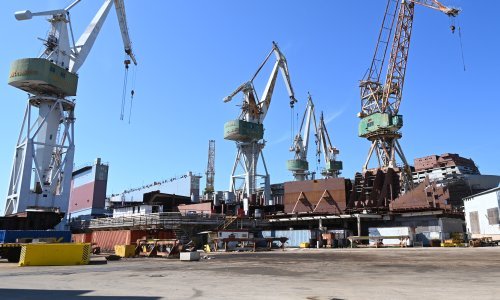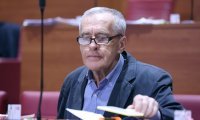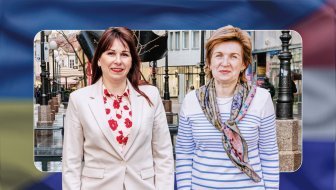By purchasing US$1.5 billion worth of Croatian bonds, foreign investors have shown they trust the Croatian government reform programme, Croatian Finance Minister Slavko Linic said in Washington on Saturday.
Linic is at the helm of Croatia's delegation taking part in the spring session of the World Bank and the International Monetary Fund (IMF)
Croatia has sold US$1.5 billion worth of five-year bonds abroad in its first sale of dollar debt in more than a year, signaling demand remains strong even as Europe’s debt crisis drags on. Croatia sold the bonds to yield 6.375 percent.
"When we look at it professionally, we got a good price. We placed bonds to a period of five years in the United States where the custom is to place bonds to a period of 10 years. There were over 350 participants in the purchase of our bonds, which shows that they very much trust the Croatian government programme of reforms and changes, as well as the responsibility for budgetary deficits. This is something that can satisfy us," Linic said in Washington in an interview for Croatian Radio Television.
Linic said Croatian citizens and investors expect the government to "stop losing money on unsuccessful subsidies in agriculture, to resolve the issue of unsuccessful railways and to finally get to grips with companies such as the Vjesnik daily and Dalmacijavino and hundreds of others swallowing money", because somebody would have to pay back that money tomorrow.
People must realise that the time is coming when it will be necessary to remove everything so that we would not go further into debt for excessive consumption, Linic said, adding that it was the government's job not to let down the public or the investors and eliminate weak spots in Croatia.
Commenting on the IMF's negative growth outlook for Croatia in 2012 of -0.5 percent, the finance minister said this was a positive thing, compared with the forecast provided by the Croatian National Bank which envisaged a negative growth of -1.0 percent and projections by bank analysts who said the economy would shrink by -2.0 percent.
Linic reiterated the Croatian government's optimism that the growth would amount to 0.8 percent, adding he was confident it was possible to "give an impetus to sleepy state-owned companies, create new jobs and realise the economic growth."
The government must not only reduce budgetary expenses but also open new investments, Linic said adding that "by the year's end Croatia would be a significant construction site."
The minister said that at this moment Croata did not need the IMF, adding however that it might need it should changes take place.
Saying that the IMF is often compared with the police, Linic said "the government will be its own strict police", because borrowing must stop.
Commenting on the World Bank predictions of slow recovery in Emerging Europe and Central Asia and the negative impact the crisis in Eurozone could have on the recovery of the countries of the region, Linic said "the European crisis means that the European GDP will go down which is a problem for Croatia's exports." However, Croatia is a big importer of goods from Europe, so we will have to raise production and replace the goods from Europe with our products.
"I am confident the crisis in Europe will not have that big of an impact on the economic growth in Southeast European countries," Linic said.
The minister said the government must change the social policy.
Croatia's delegation comprised of representatives of the Finance Ministry and the central bank held talks with World Bank vice president for Europe and Central Asia, Phillipe le Houerou, director for Croatia Peter Harrold and executive director Jan Tredders about Croatia's cooperation with the World Bank.



































